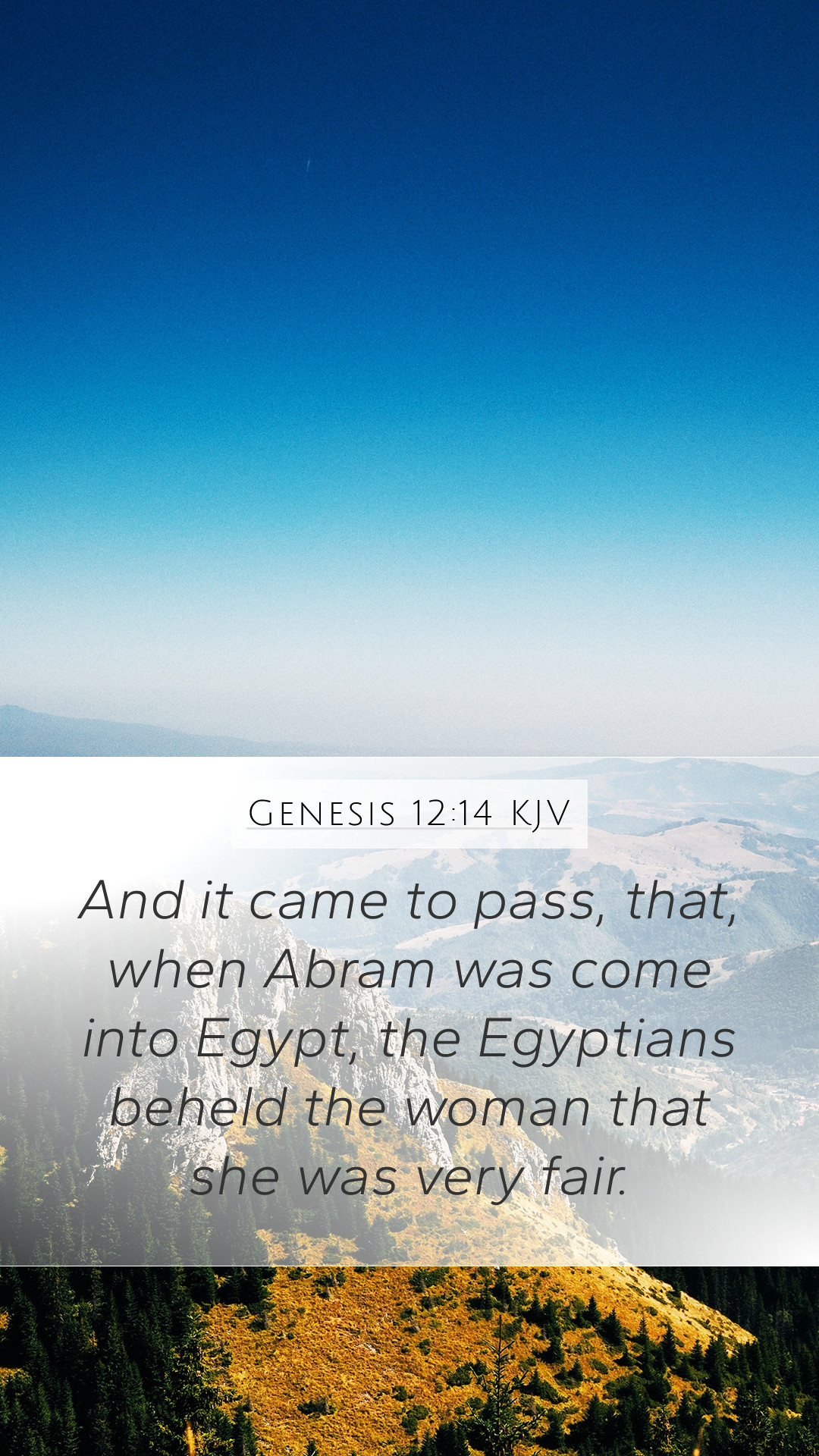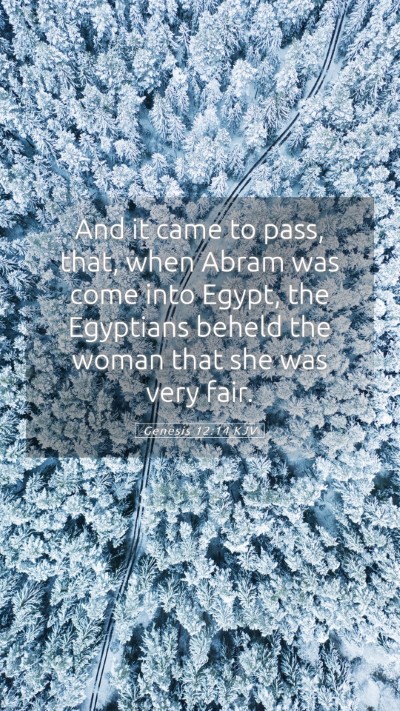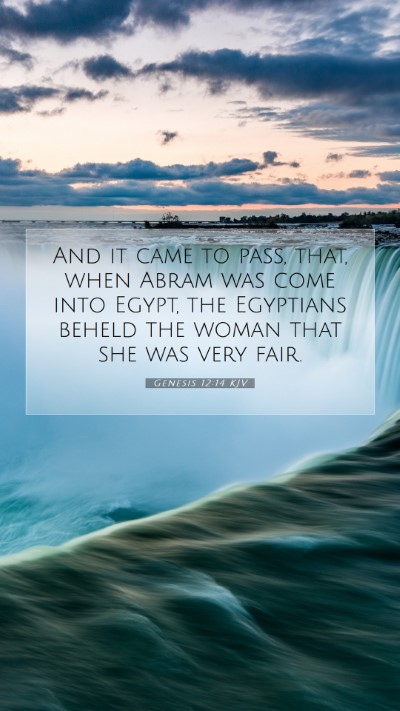Understanding Genesis 12:14
This analysis provides a comprehensive understanding of Genesis 12:14, where the situation unfolds as Abram enters Egypt with his wife Sarai. The verse intricately reveals themes of faith, morality, and divine protection. Each commentary sheds illuminating insights on the context and implications of this pivotal moment in biblical history.
Verse Text
Genesis 12:14 (KJV): "And it came to pass, that, when Abram was come into Egypt, the Egyptians beheld the woman that she was very fair."
Bible Verse Interpretation and Commentary
- Matthew Henry’s Commentary
According to Matthew Henry, this verse indicates the natural beauty of Sarai which drew the attention of the Egyptians. Henry emphasizes that such beauty can bring both admiration and potential danger. He links this observation to a broader spiritual principle: the intrinsic value and attractiveness of a godly character.
- Albert Barnes’ Notes
Albert Barnes highlights that Abram's journey into Egypt represents a critical test of faith. He notes that the attention Sarai receives foreshadows the trials that Abram will face as a result of his decisions. Barnes suggests that this moment exemplifies the contrast between human action and divine providence, underscoring that God watches over His people even in foreign lands.
- Adam Clarke’s Commentary
Adam Clarke elaborates on the cultural implications of Sarai's beauty, stating that it captured the attention of Pharaoh's envoys. He argues that the interaction between Abram and the Egyptians reveals profound truths about societal norms and values. Clarke interprets Sarai’s situation as a reflection of the allure of worldly possessions, which can lead to complicity in moral dilemmas.
Key Themes and Insights
- Divine Protection:
The text insinuates that despite the precarious circumstances, God remains sovereign and aware of Abram’s plight and Sarai’s integrity.
- Beauty and Vulnerability:
Sarai's beauty is a double-edged sword; it facilitates envy and intrigue while also showcasing Abram's vulnerability as a protector.
- Cultural Context:
Understanding the cultural background of Egypt in the biblical narrative is crucial. The Egyptians’ response to Sarai reflects ancient societal values concerning women and beauty.
- Faith and Fear:
Abram’s decision to journey into Egypt reveals a moment of fear where he compromises his faith for temporary safety, a common human struggle.
Additional Biblical Cross References
- Genesis 12:10: The initial move into Egypt due to famine.
- Genesis 20:2: Abram's later deception regarding Sarai's identity.
- Exodus 1:15-16: The treatment of Hebrew women in Egypt, mirroring themes of vulnerability.
Applications and Reflections
This verse invites readers to reflect on their faith amidst challenges. Application of Genesis 12:14 can be drawn in the following ways:
- Recognizing the importance of divine guidance in our decisions.
- Acknowledging vulnerabilities in our lives and seeking God’s protection.
- Understanding the influence of worldly standards and how they challenge godly principles.
Conclusion
Genesis 12:14 serves as a poignant reminder of the intersectionality between faith, morality, beauty, and vulnerability. The varying interpretations by renowned commentators underscore that every Bible verse meaning often carries a deeper lesson on faith and human existence. Through rigorous scripture analysis, we can appreciate how ancient texts speak into modern dilemmas.
Further Study Resources
- Bible Study Groups: Engage in discussions to deepen your understanding.
- Online Bible Study: Utilize resources to facilitate group learning.
- Bible Study Guides: Explore structured formats to navigate complex verses.


